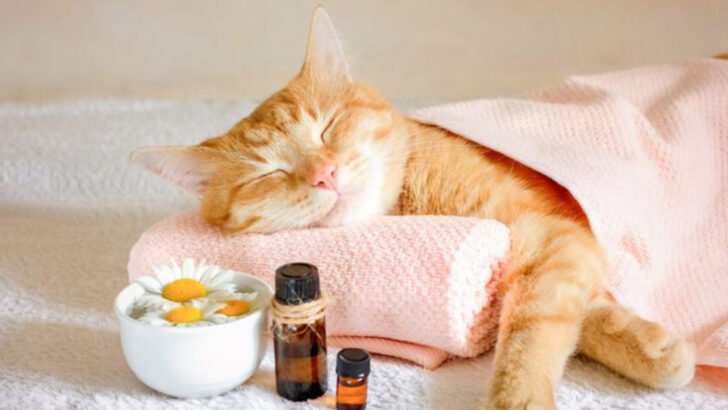An anxious cat can unravel a household faster than spilled kibble.
One minute they’re purring, the next they’re under the couch like the world’s ending. Sound familiar?
This isn’t just a “quirky cat thing.” It’s fear. It’s stress. And if you’re living with it, you know it’s heartbreaking.
But it doesn’t have to stay that way.
The secret? Small, daily rituals that speak their language — safety, comfort, consistency. We’re talking real, doable stuff. Not vet-speak. Not magic. Just 16 habits that can change your cat’s life (and yours) from chaos to calm.
Because behind every anxious cat is a human desperate to help.
Let’s make it easier. Let’s make it work.
Playtime with Interactive Toys
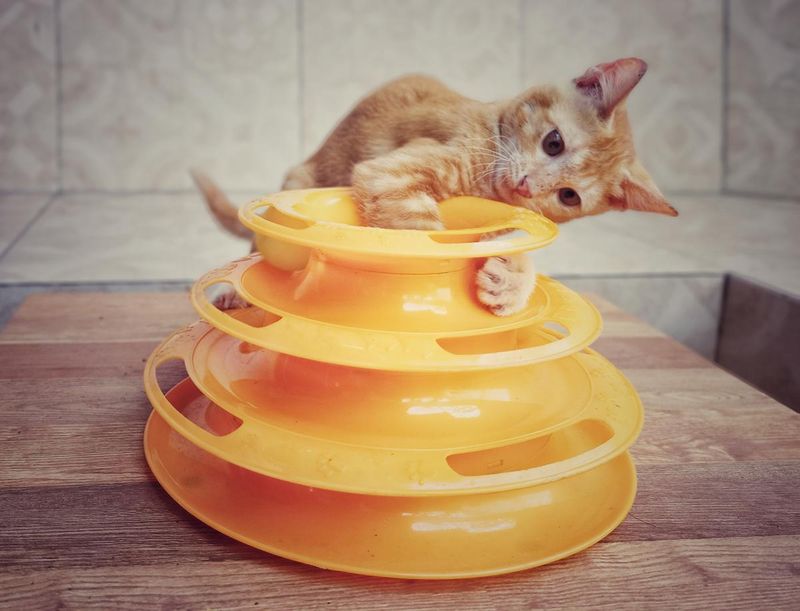
Interactive play is essential for a cat’s mental stimulation. A simple feather wand can work wonders in engaging your cat’s natural hunting instincts. This activity not only provides physical exercise but also strengthens the bond between you and your pet.
By dedicating just a few minutes each day to play, you can significantly reduce your cat’s stress levels. Consider rotating toys to maintain interest. Change up the play routine to keep it exciting.
This thoughtful interaction will help in building trust and confidence in your cat, making them feel safer and more secure.
Creating Safe Hiding Spots
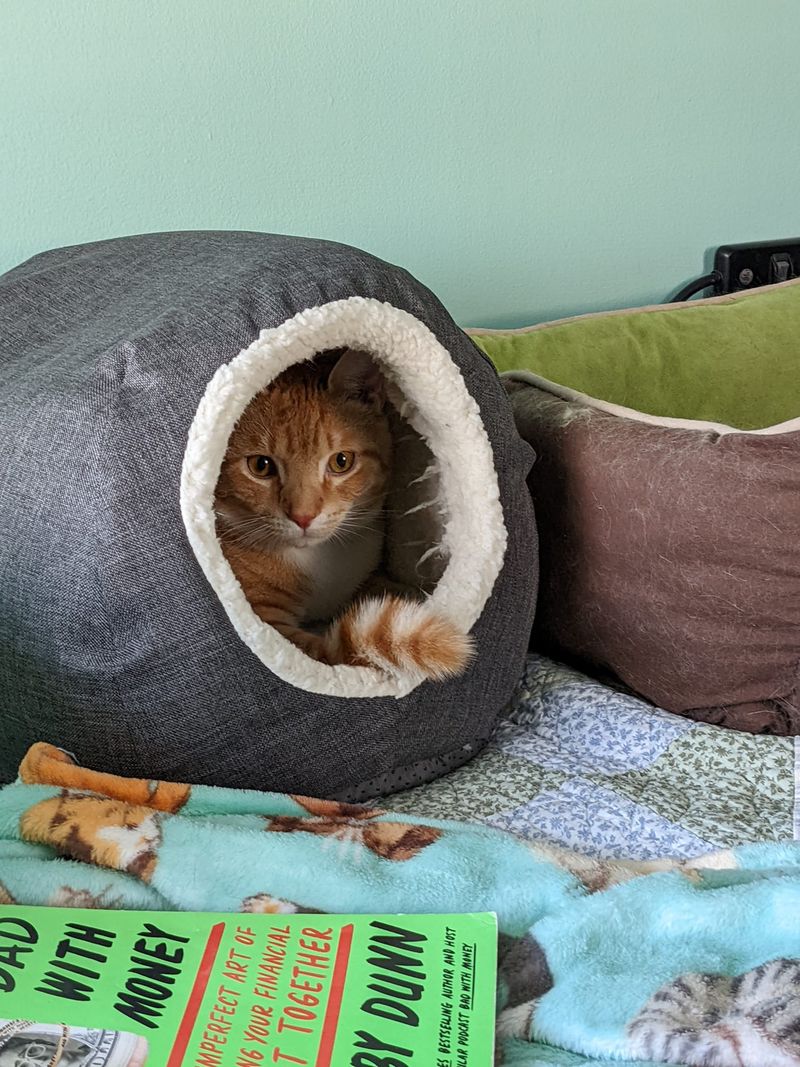
Cats love having their own private spaces where they can retreat and feel safe. Creating a cozy hiding spot with blankets and cat beds provides them with a sanctuary.
Such spaces should be away from noise and high traffic areas in your home. These hiding spots help your cat cope with anxiety by offering a place to escape when they feel overwhelmed.
Additionally, having multiple spots around the house can give your feline friend options depending on their mood. Make sure these areas are easily accessible and comfortable.
Regular Feeding Schedule
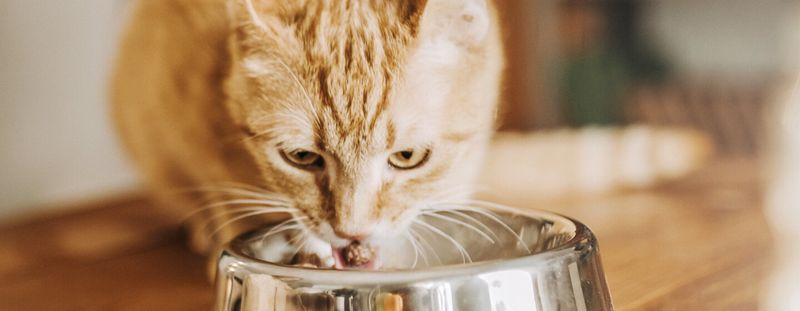
Consistency in feeding times can greatly reduce anxiety in cats. Cats thrive on routine, and knowing when their next meal is coming provides a sense of security. Establish a set schedule for feeding, and try to adhere to it as closely as possible.
Feeding at the same times each day helps regulate your cat’s digestive system, reducing stress-related issues. It’s also an opportunity to spend time with your pet, reinforcing positive associations.
By maintaining a regular routine, you create a predictable environment that reassures your anxious cat.
Engaging Scent Environments
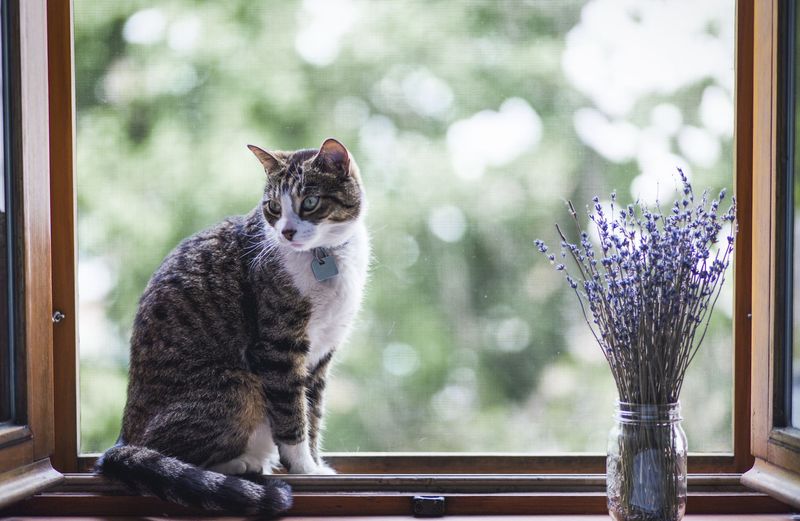
Cats have a highly developed sense of smell, and certain scents can have a calming effect. Consider using pheromone diffusers or natural scents like lavender to create a soothing environment. These can help ease anxiety and promote relaxation.
Place diffusers in areas where your cat spends most of their time. It’s essential to ensure that any scents used are safe for cats, as some can be harmful.
By carefully selecting calming aromas, you can positively influence your cat’s mood and overall well-being, helping them feel more at ease.
Gentle Grooming Sessions
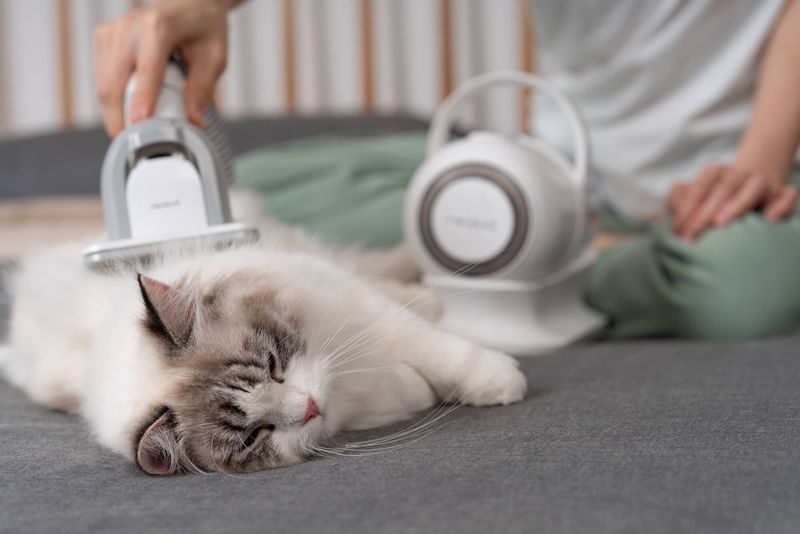
Grooming can be a therapeutic experience for cats, especially when done gently. Regular brushing not only keeps their coat healthy but also provides a calm bonding experience.
Cats often find the repetitive motion soothing, which can help alleviate anxiety. Take time to groom your cat in a quiet space, free from distractions. This practice not only cuts down on shedding but also reassures your pet through touch.
The act of grooming can be both a bonding moment and a calming ritual, enhancing your cat’s sense of well-being.
Background Music for Relaxation
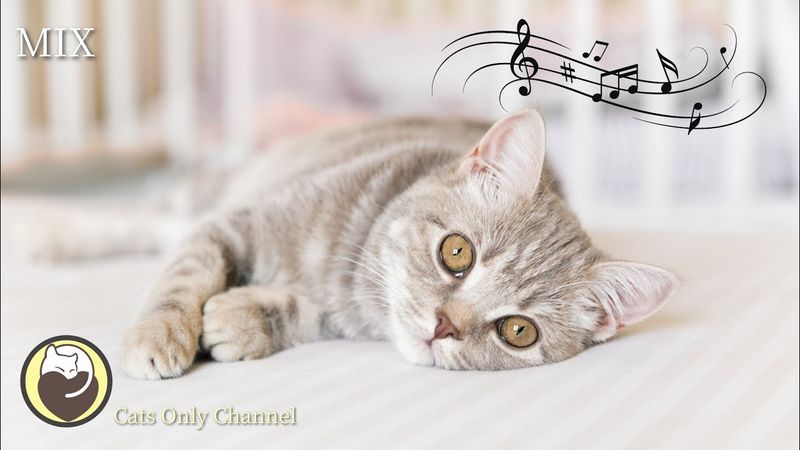
Music can have a profound effect on a cat’s mood. Playing soft classical or specially designed cat music in the background creates a serene atmosphere. The gentle sounds can mask sudden noises that might startle an anxious cat.
Music therapy for cats is a growing field, with specific tracks designed to calm feline nerves. Experiment with different genres to see which resonates best with your pet.
By incorporating calming tunes into their environment, you can help soothe your cat’s anxiety and create a peaceful home setting.
Daily Exercise Routine
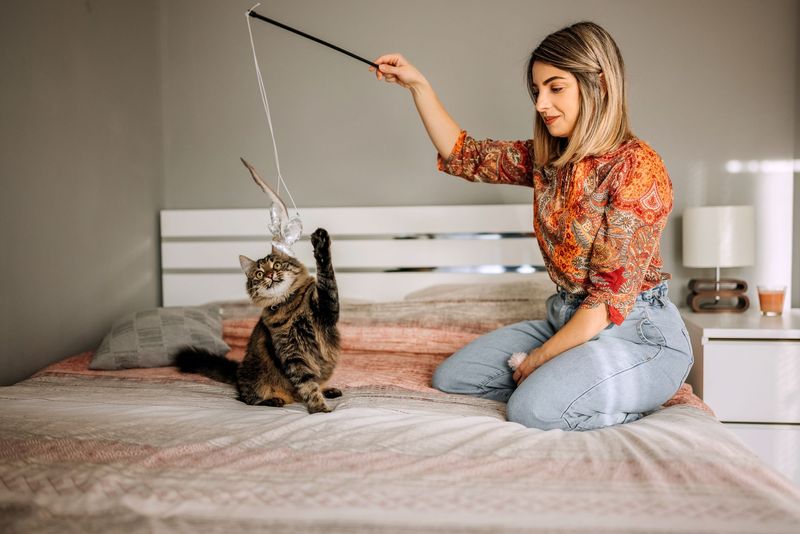
Regular physical activity is essential for a cat’s mental and physical health. Setting up a daily exercise routine helps release pent-up energy that can contribute to anxiety.
Activities can include chasing toys, running through obstacle courses, or even walking on a leash. Exercise not only provides physical benefits but also serves as an outlet for anxiety.
By keeping your cat active, you help them maintain a healthy weight and reduce stress. Tailor the routine to your cat’s preferences to ensure it remains an enjoyable and beneficial part of their day.
Dedicated Quality Time
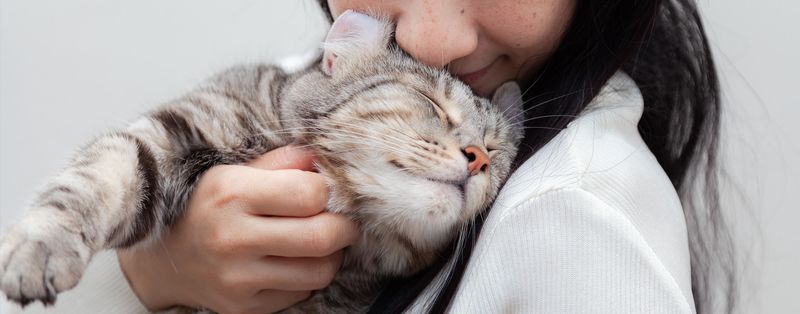
Spending quality time with your cat is crucial for building a trusting relationship. Regularly setting aside time to sit and bond with your pet can help alleviate anxiety. This time can include gentle petting, talking, or simply being present.
The presence of a trusted human can be incredibly reassuring for an anxious cat. It reinforces the idea that they are cared for and loved.
By making a habit of these quiet moments together, you support your cat’s emotional needs and help them feel more secure in their environment.
Providing Elevated Perches
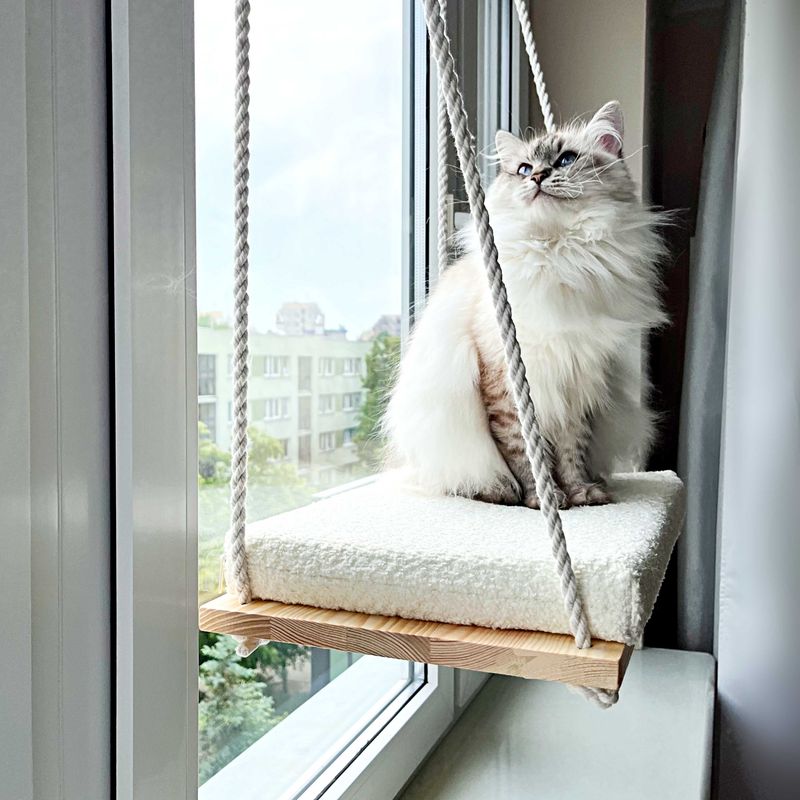
Cats feel more secure when they have a vantage point from which to observe their surroundings. Providing elevated perches, like cat trees or shelves, allows them to watch over their territory.
These high spots give cats the confidence to explore their environment safely. They also offer a retreat from household chaos, allowing your cat to relax and unwind.
By incorporating vertical spaces into your home, you create an environment where your cat can feel both in control and at ease, significantly reducing anxiety.
Consistent Environment
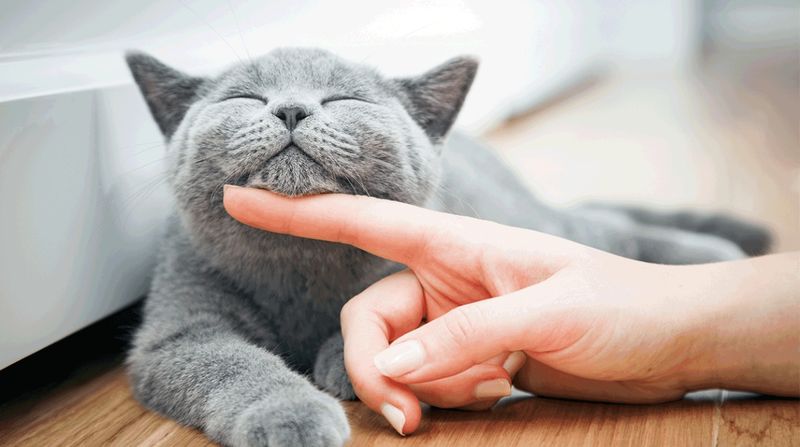
A stable environment is vital for a cat’s peace of mind. Cats are creatures of habit, and frequent changes to their surroundings can lead to stress. Maintaining a consistent environment includes keeping furniture in place and minimizing loud noises.
When changes must occur, introduce them gradually to give your cat time to adjust. Consider their perspective and how modifications might affect them.
By ensuring a stable and predictable space, you provide the comfort and security that an anxious cat needs to thrive.
Aromatherapy for Felines
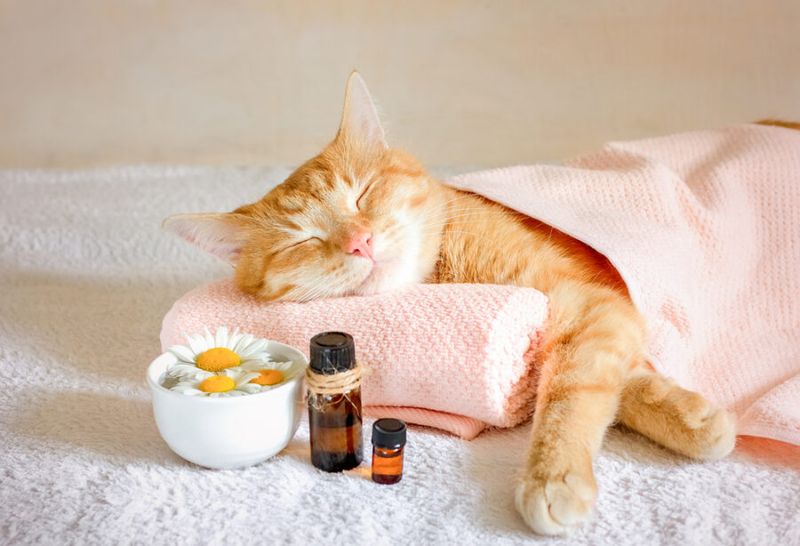
Cats respond well to certain scents, making aromatherapy a soothing option. Essential oils like lavender can have a calming effect on your pet.
Place a diffuser in a quiet room to gently scent the air. It’s vital to ensure that oils are safe for cats, as some can be harmful.
A relaxed environment filled with calming aromas can alleviate your cat’s stress, providing a peaceful retreat. Always monitor your pet’s reaction to new scents and adjust accordingly.
Tactile Comfort with Soft Blankets
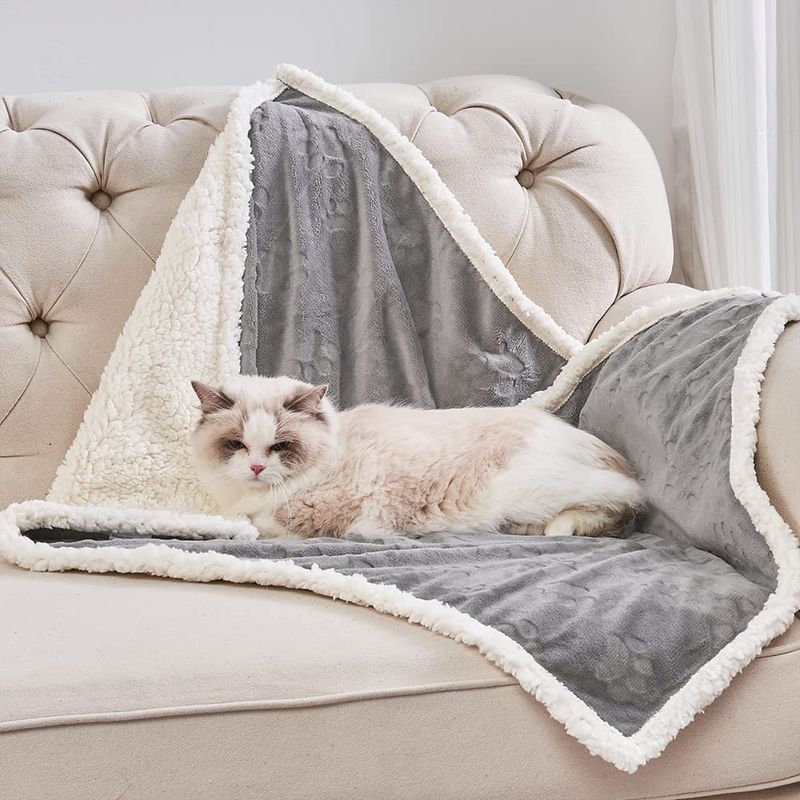
Soft textures can be incredibly comforting for cats. Providing your pet with a variety of cozy blankets to snuggle into can drastically reduce anxiety.
Choose blankets made of materials like fleece that offer warmth and softness.
This tactile comfort not only soothes their physical discomfort but also helps them feel secure. It’s a simple yet effective way to improve their emotional health.
Visual Engagement with Bird Videos
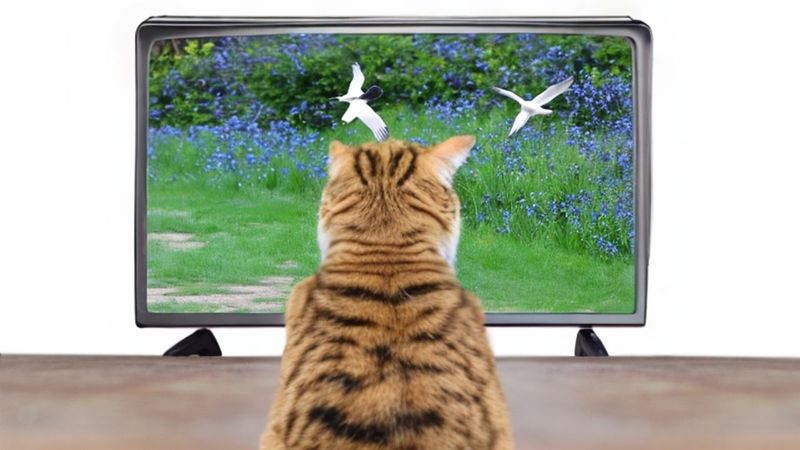
Stimulating your cat’s visual senses with bird videos can provide both entertainment and relaxation. Birds flitting across the screen captivate and calm anxious cats.
It’s a delightful way to engage them without overwhelming their senses.
Ensure the volume is low to prevent any auditory stress. This simple activity offers hours of enjoyment and distraction from anxiety triggers.
Massage Therapy for Cats
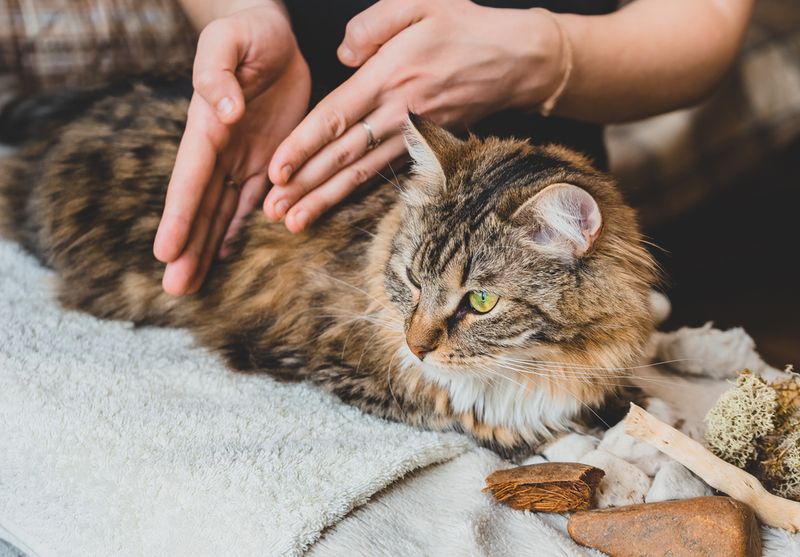
Massage isn’t just for humans; cats can benefit too. Gentle massages can help relax tense muscles and provide comfort.
Focus on areas your cat enjoys, like the base of their tail or behind the ears.
Regular massage sessions can decrease anxiety levels, offering a unique bonding experience. It’s a nurturing habit that promotes both physical and emotional well-being.
Soothing with Nature Sounds
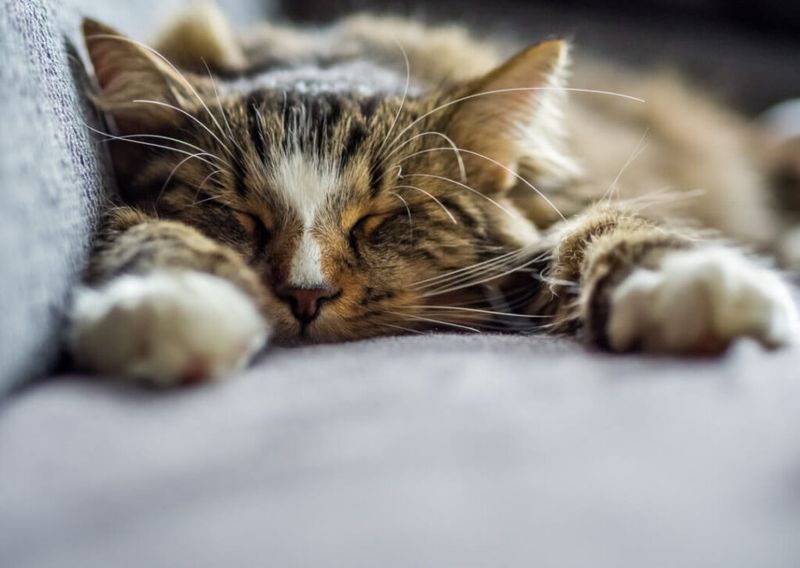
Nature sounds can create a calming backdrop for cats. Playing these soothing sounds can mimic the tranquility of the outdoors.
Choose sounds like gentle rain or birds chirping to help your cat unwind.
This auditory environment not only reduces stress but also contributes to a serene home atmosphere, promoting mental relaxation for your feline friend.
Temperature Control for Comfort
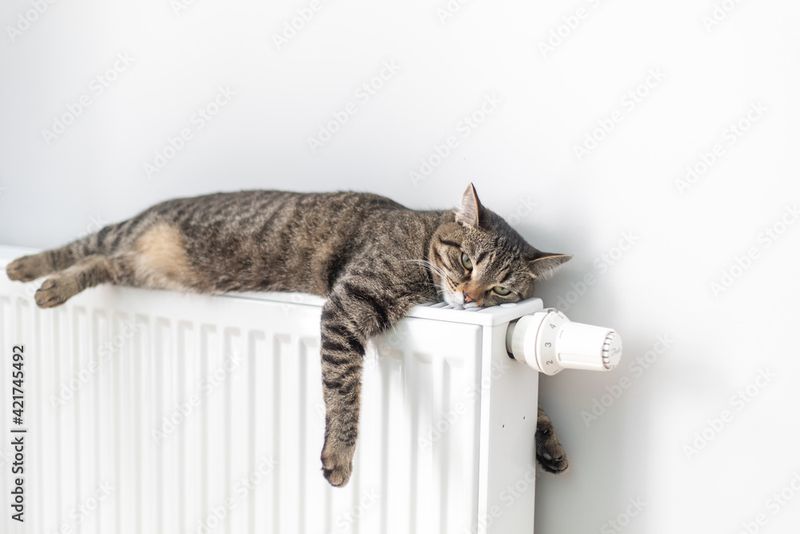
Cats are highly sensitive to temperature changes. Ensuring a comfortable room temperature can significantly affect their mood.
Cats love basking in sunny spots, so make sure they have access to warmth.
Maintaining an optimal environment helps reduce anxiety and provides a sense of security. This simple adjustment in your home can make a big difference in your cat’s life.

